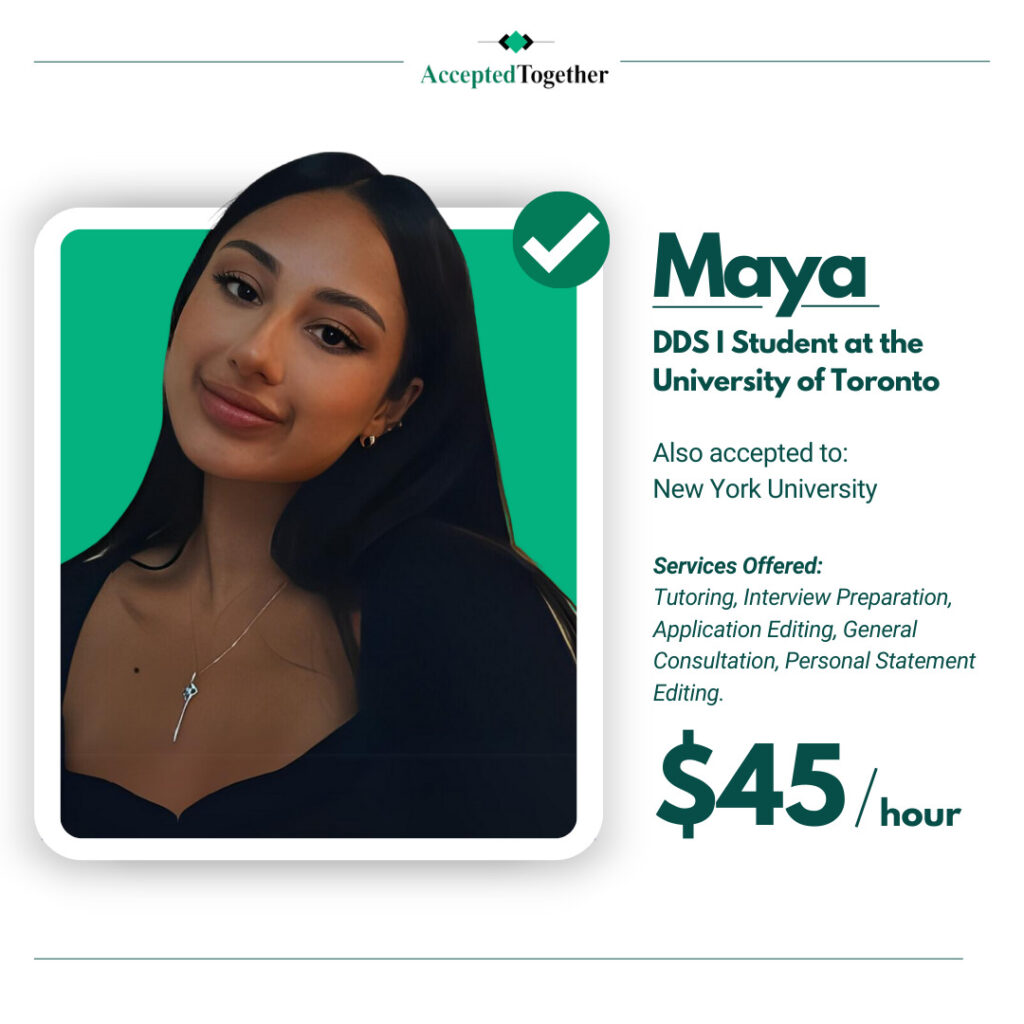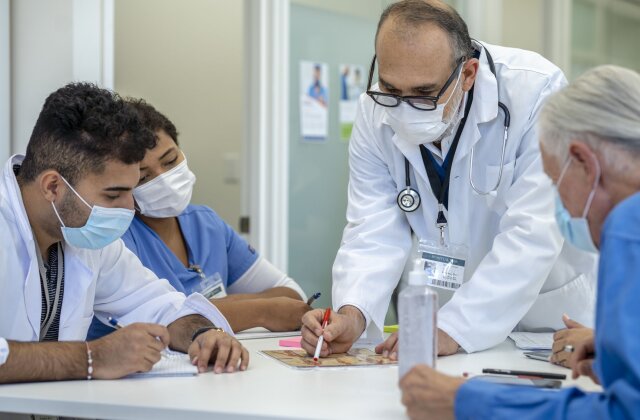
Table of Contents
Introduction
In recent years, the topic of online medical school prerequisites has emerged as a significant point of discussion among educators, students, and medical school admissions committees. The advent and widespread adoption of online education have revolutionized how students learn, offering unprecedented opportunities for many aspiring medical professionals, particularly those in remote or underserved areas. Online courses have become a vital component of the educational landscape, providing an alternative pathway for students who may not have access to traditional classroom settings.
However, the rise of online prerequisites for medical school has also sparked a debate about their legitimacy and effectiveness. Some in the medical education community remain skeptical, questioning whether online courses can truly prepare students for the rigorous demands of medical school. Despite this skepticism, the growing popularity of online education suggests that it is here to stay, and its impact on medical school admissions is likely to continue expanding.
This article explores the current state of online prerequisites for medical school, examining both the opportunities they offer and the challenges they present. Through an analysis of success stories, obstacles, and the evolving attitudes within medical academia, we aim to provide a comprehensive understanding of how online education is reshaping the path to a medical career.
Click to see hundreds of consultants who can mentor you:


The Rise of Online Prerequisite Programs
The emergence of online prerequisite programs for medical school is one of the most significant developments in medical education in recent years. These programs have transformed the way students prepare for medical school, making education more accessible and flexible. This section delves into the origins, reach, and impact of online prerequisite programs, highlighting their role in broadening access to medical education.
The Inception and Reach of Remote Learning Programs
Online medical school prerequisite programs were developed in response to the growing demand for accessible education options, particularly for students who live far from traditional educational centers. These programs break down geographical barriers, allowing students to pursue medical education regardless of their location. The ability to access quality education from anywhere in the world has been a game-changer for many students, particularly those in rural or underserved areas where traditional medical schools are scarce.
Online prerequisite programs offer a flexible learning environment that accommodates different lifestyles and commitments. Students can complete coursework at their own pace, making it possible to balance education with work, family, and other responsibilities. This flexibility is particularly valuable for non-traditional students, such as those who are returning to school after a break or those who are working while pursuing their education.
The reach of online programs extends beyond geographical boundaries, making education more inclusive and accessible. These programs cater to a diverse student population, including those who face economic or logistical challenges that would make attending a traditional school difficult. By removing these barriers, online programs ensure that more students have the opportunity to pursue a medical career.
Demographics and Geographic Diversity of Enrollments
One of the most significant advantages of online medical school prerequisite programs is their ability to attract a diverse group of students. According to recent data, 85% of students enrolled in these programs live out-of-state, underscoring the widespread appeal and accessibility of online education. These programs are particularly popular among students from rural areas, where traditional medical schools may be located far from home, making it difficult or impossible to attend.
In addition to geographical diversity, online programs have also succeeded in attracting students from a wide range of ethnic and socioeconomic backgrounds. Approximately 30% of students enrolled in online medical school prerequisites identify as Black or Latinx, a statistic that highlights the role these programs play in promoting diversity within the medical field. By providing access to education for students from underrepresented communities, online programs are helping to create a more inclusive and equitable medical profession.
The demographic diversity of students in online programs is not just a reflection of the accessibility of these programs but also a testament to their appeal as a viable pathway to a medical career. For many students, online education offers a more flexible, affordable, and convenient option than traditional in-person programs, making it an attractive choice for those who might otherwise be excluded from the medical education pipeline.
Success Stories: Early Graduates’ Journey to Medical Colleges
The success of online medical school prerequisite programs can be seen in the stories of early graduates who have gone on to attend prestigious medical schools. These students have demonstrated that online education can provide a solid foundation for a medical career, despite the skepticism of some in the medical community.
One of the most compelling aspects of these success stories is the way graduates have navigated the challenges of online education to achieve their goals. For many, the flexibility of online programs has allowed them to balance their studies with other responsibilities, such as work or family. This ability to manage multiple commitments while pursuing a rigorous academic program is a testament to the resilience and determination of these students.
Graduates of online programs have also had to overcome the skepticism of admissions committees, who may question the rigor and legitimacy of online coursework. However, many of these students have succeeded in gaining admission to competitive medical schools, including those in California and other highly selective states. Their success challenges the notion that online education is inherently inferior to traditional classroom-based learning and suggests that online prerequisites can be a viable pathway to a medical career.
The Skepticism Surrounding Online Education in Medical Admissions
Despite the success stories of online prerequisite graduates, skepticism remains within the medical education community. Many admissions officers and faculty members continue to view online education with suspicion, questioning whether it can provide the same level of preparation as traditional in-person programs. This section explores the concerns of admissions officers and the ongoing debates about the quality of online education.
Admissions Officers’ Reservations
Admissions officers play a critical role in determining who gets admitted to medical school, and their views on online education can significantly impact the chances of students who have completed online prerequisites. Historically, admissions officers have been more comfortable with traditional in-person education, which they perceive as more rigorous and immersive.
One of the main concerns of admissions officers is whether online courses can truly replicate the depth and intensity of traditional classroom-based learning. Medical school is known for its demanding curriculum, which requires students to master complex concepts and develop practical skills. Admissions officers worry that online courses, which may lack the hands-on components of in-person education, might not adequately prepare students for the challenges of medical school.
Additionally, there is concern about the quality and consistency of online courses. Unlike traditional courses, which are often taught by full-time faculty at established institutions, online courses can vary widely in terms of content, delivery, and instructor qualifications. This variability makes it difficult for admissions officers to assess the quality of an applicant’s online education, leading to hesitation in accepting online prerequisites.
Traditional Versus Online Education Quality Debates
The debate over the quality of online education is a central issue in the discussion about online medical school prerequisites. On one side of the debate are those who argue that traditional in-person education offers a more comprehensive and immersive learning experience. They point to the importance of face-to-face interactions with instructors and peers, as well as the hands-on training that is often a key component of medical education.
On the other side of the debate are proponents of online education, who argue that digital courses can be just as effective, if not more so, than traditional programs. They point to the flexibility and accessibility of online education, as well as the innovative use of technology to enhance learning. For example, online courses can incorporate multimedia resources, interactive simulations, and other digital tools that can make learning more engaging and effective.
Proponents also argue that online education can offer unique benefits that traditional programs cannot, such as the ability to learn at one’s own pace and the opportunity to access a wide range of resources from anywhere in the world. They believe that with the right design and implementation, online courses can provide a high-quality education that prepares students for the rigors of medical school.
Addressing the Concerns: Practical Experiences and Engagement
One of the key challenges of online medical school prerequisites is ensuring that students receive the practical experience and engagement that is so critical to medical education. In traditional programs, students often participate in labs, clinical rotations, and other hands-on activities that help them develop the skills they will need as medical professionals.
To address this challenge, many online programs have developed innovative solutions that combine digital learning with practical experience. For example, some programs offer virtual labs that allow students to simulate medical procedures and experiments in a controlled online environment. These virtual labs can provide a valuable learning experience, even if they cannot fully replicate the hands-on experience of a traditional lab.
In addition to virtual labs, online programs are increasingly incorporating interactive components that foster engagement and collaboration among students. These may include live video sessions, discussion forums, and group projects that allow students to interact with their peers and instructors in real time. By creating a more interactive and engaging learning environment, online programs can help ensure that students receive a well-rounded education that includes both theoretical knowledge and practical skills.
Another approach to addressing the concerns about practical experience is to partner with local medical facilities to offer students in-person training opportunities. Some online programs have established partnerships with hospitals, clinics, and other healthcare providers to allow students to complete their clinical rotations or other hands-on training in a real-world setting. This hybrid approach combines the flexibility of online education with the practical experience of traditional programs, providing students with the best of both worlds.
Click to see hundreds of consultants who can mentor you:


Amplifying Opportunities for Underrepresented Communities
One of the most significant benefits of online medical school prerequisites is their ability to amplify opportunities for underrepresented communities. By providing access to education for students who might otherwise be excluded, online programs are helping to create a more diverse and inclusive medical profession. This section explores the impact of online education on diversity in medical schools and the ways in which online programs are helping to bridge the gap for students from underrepresented backgrounds.
Online Programs as an Access Pathway for Black and Latinx Students
For many Black and Latinx students, online medical school prerequisites offer a critical pathway to a medical career. These students often face significant barriers to accessing traditional education, including financial constraints, geographical limitations, and a lack of support and resources. Online programs can help to overcome these
barriers by providing a more flexible and accessible option for completing prerequisite coursework.
The demographic data from online programs underscores their importance in promoting diversity within the medical field. With nearly 30% of enrollees identifying as Black or Latinx, online programs are playing a vital role in increasing the representation of these communities in medical education. This increased diversity is not only important for creating a more equitable educational environment but also for ensuring that the medical profession reflects the diversity of the population it serves.
By offering a more accessible pathway to medical education, online programs are helping to level the playing field for Black and Latinx students. This, in turn, can lead to greater diversity in medical schools and, ultimately, a more diverse and inclusive healthcare workforce.
Overcoming Geographical and Socioeconomic Barriers
In addition to promoting racial and ethnic diversity, online medical school prerequisites are also helping to overcome geographical and socioeconomic barriers that have traditionally limited access to medical education. Students from rural areas, for example, may have limited access to traditional educational institutions, making it difficult for them to complete the necessary coursework for medical school.
Online programs eliminate the need for students to relocate or commute long distances to attend classes, making education more accessible for those in remote areas. This can be particularly important for students from low-income backgrounds, who may not have the financial resources to move to a city with a medical school or pay for transportation to and from campus.
The financial savings associated with online education can also be significant. In many cases, online courses are less expensive than their traditional counterparts, and students can save on additional costs such as housing, transportation, and textbooks. For students who are already working or supporting a family, the ability to continue working while completing their education can make the difference between pursuing a medical career and giving up on their dreams.
The Impact on Diversity in Medical Schools
The impact of online medical school prerequisites on diversity in medical schools is already becoming apparent. As more students from underrepresented communities and rural areas gain access to medical education, the demographics of medical school classes are beginning to change. This increased diversity is not only important for creating a more inclusive educational environment but also for improving the quality of healthcare.
A diverse medical workforce is better equipped to understand and address the needs of a diverse population. Physicians from underrepresented communities are more likely to practice in underserved areas and to provide culturally competent care to patients from similar backgrounds. By increasing access to medical education for students from diverse backgrounds, online programs are helping to ensure that the medical profession is more reflective of the population it serves.
The presence of diverse perspectives in medical schools also enriches the learning environment for all students. When students from different backgrounds come together, they bring with them a wealth of experiences, insights, and viewpoints that can enhance the educational experience for everyone. This diversity of thought is critical for preparing the next generation of physicians to navigate the complexities of modern healthcare.
Advocacy and Opposition: A Juxtaposition
The rise of online medical school prerequisites has sparked a debate that is both passionate and divided. While some advocate for the expansion of online education as a means of increasing access and diversity, others remain firmly opposed, arguing that online programs cannot match the quality of traditional education. This section examines the arguments on both sides of the debate, exploring the reasons behind the advocacy for and opposition to online prerequisites.
Pushing Forward: Advocates for Online Education
Advocates for online medical school prerequisites argue that these programs offer a flexible, accessible, and inclusive pathway to a medical career. They point to the success stories of students who have completed online courses and gained admission to prestigious medical schools as evidence that online education can be effective.
One of the main arguments in favor of online education is its ability to reach students who might otherwise be excluded from the medical education pipeline. By breaking down geographical and financial barriers, online programs make it possible for students from all walks of life to pursue a medical career. This, in turn, helps to create a more diverse and inclusive medical profession.
Advocates also argue that online education can offer unique benefits that traditional programs cannot. For example, the flexibility of online courses allows students to learn at their own pace, which can be particularly beneficial for those who need to balance their studies with other responsibilities. Additionally, online programs can incorporate innovative technology and multimedia resources that enhance the learning experience.
Resistance and Critiques from the Traditionalist Perspective
Despite the advantages of online education, there is still significant resistance from those who believe that traditional in-person education is superior. Critics argue that online courses cannot provide the same level of rigor, depth, and hands-on experience as traditional programs. They worry that students who complete online prerequisites may not be adequately prepared for the challenges of medical school and that the quality of online education is too variable to be trusted.
One of the main concerns of traditionalists is the lack of face-to-face interaction in online courses. They argue that the in-person relationships that students build with their instructors and peers are critical for developing the communication, teamwork, and interpersonal skills that are essential for a successful medical career. Without these interactions, they fear that students may be missing out on an important aspect of their education.
Another concern is the potential for online courses to be less rigorous than traditional programs. Critics worry that the lack of oversight and standardization in online education could lead to a decline in academic standards, making it easier for students to pass courses without fully mastering the material. This, they argue, could result in a generation of medical students who are less prepared and less qualified than their predecessors.
Examining Success Cases: From Online Courses to Medical Colleges

Despite the concerns and critiques, there are numerous success stories of students who have completed online medical school prerequisites and gone on to attend prestigious medical schools. These success stories challenge the notion that online education is inferior and demonstrate that it is possible to achieve academic and professional success through online learning. This section explores the experiences of these students and the factors that contributed to their success.
Overview of Success Stories: Admission into Medical Colleges
There are countless examples of students who have completed online medical school prerequisites and successfully gained admission to competitive medical schools. These students come from a variety of backgrounds, including those who live in rural areas, those who are working while studying, and those who are from underrepresented communities.
For many of these students, online education was the only viable option for completing their prerequisite coursework. The flexibility of online courses allowed them to balance their studies with other responsibilities, such as work or family, and the accessibility of online programs made it possible for them to pursue their education from anywhere in the world.
These success stories demonstrate that online education can be a viable pathway to a medical career, even in the face of skepticism from admissions committees. By excelling in their online courses and performing well on standardized tests, these students have proven that they are just as capable as their peers who completed traditional programs.
Crafting the Argument: How Graduates Position Their Online Education
Graduates of online medical school prerequisites have had to be strategic in how they present their education to admissions committees. Many have gone to great lengths to emphasize the rigor and quality of their online coursework, as well as the unique benefits that online education has provided.
One of the key arguments that graduates make is that their online education has prepared them to be more independent, self-motivated, and adaptable. These are qualities that are highly valued in the medical profession, and graduates argue that the challenges of online learning have helped them develop these skills to a greater extent than they might have in a traditional program.
Graduates also highlight the ways in which online education has allowed them to gain a broader range of experiences and perspectives. By being able to take courses from institutions around the world, they have been exposed to a diverse array of teaching styles, materials, and ideas. This global perspective, they argue, has enriched their education and made them better-prepared for the challenges of medical school.
A Look into Admissions’ Flexibility and Exceptions
While some admissions committees remain skeptical of online education, there is growing evidence that they are becoming more flexible in their acceptance of online prerequisites. In some cases, admissions committees have made exceptions for students who have demonstrated exceptional academic performance or who have compelling personal stories that highlight the challenges they have overcome.
This flexibility is particularly important for students from underrepresented communities, who may not have had access to traditional education options. By recognizing the unique circumstances of these students and considering their online education on a case-by-case basis, admissions committees can help to ensure that the medical profession becomes more diverse and inclusive.
As more students successfully navigate the admissions process with online prerequisites, it is likely that the acceptance of online education will continue to grow. This, in turn, could lead to more students choosing online programs as a viable pathway to medical school, further expanding access to medical education.
Navigating Future Pathways: The Evolution of Admissions’ Perception
The perception of online medical school prerequisites is evolving as digital education becomes more prevalent and more students choose this pathway to fulfill their prerequisites. This section discusses the potential shifts in admissions policies, the role of technological innovations in enhancing online learning experiences, and predictions for the future of online medical education.
Possible Shifts in Perception Due to Increasing Online Education Trends
As online education becomes increasingly common, it is likely that admissions committees will become more open to accepting online prerequisites. The demographic diversity of students who choose online programs, along with their success stories, could influence a shift in perception, leading to greater acceptance of online education as a legitimate and effective pathway to medical school.
Moreover, as more medical schools begin to offer their own online prerequisite courses, the stigma associated with online education may begin to fade. When prestigious institutions start to embrace online learning as a viable option for their own students, it sends a powerful message to the broader medical education community that online education is not just an alternative but a valuable addition to the educational landscape.
Technological Innovations Enhancing Online Learning Experiences
One of the key factors that will influence the future of online medical education is the continued development of technological innovations that enhance the online learning experience. Virtual labs, interactive simulations, and other digital tools are already transforming the way students learn, making it possible to create a more immersive and engaging educational experience online.
These technological advancements have the potential to address many of the concerns that have been raised about the quality of online education. For example, virtual labs can provide students with hands-on experience in a controlled online environment, while interactive simulations can allow them to practice clinical skills and decision-making in a safe and realistic setting.
As these technologies continue to evolve, they will likely play an increasingly important role in online medical education. By providing students with high-quality, practical learning experiences, they can help to ensure that online education is on par with, or even superior to, traditional classroom-based learning.
Predicting Admissions Policies’ Adaptation to the Changing Education Landscape
The future of admissions policies regarding online medical school prerequisites is likely to be shaped by a combination of factors, including the continued success of online graduates, the evolution of online learning technologies, and the growing acceptance of online education within the medical community.
As more students successfully complete online prerequisites and gain admission to medical schools, it is likely that admissions committees will become more comfortable with accepting online coursework. This could lead to a gradual shift in admissions policies, with more schools explicitly recognizing online prerequisites as a legitimate option for fulfilling pre-medical requirements.
At the same time, the development of new technologies that enhance the online learning experience could help to alleviate some of the concerns that have been raised about the quality of online education. As virtual labs, interactive simulations, and other digital tools become more sophisticated, they can provide students with the hands-on experience and engagement that is so critical to medical education.
In the long term, it is possible that online education will become an integral part of the medical education landscape, with more students choosing online programs as their primary pathway to medical school. This shift could lead to a more diverse and inclusive medical profession, as online education continues to break down the barriers that have traditionally limited access to medical education.
Conclusion
The rise of online medical school prerequisites represents a significant shift in the landscape of medical education. By providing a flexible, accessible, and inclusive pathway to a medical career, online programs are helping to create a more diverse and equitable medical profession. Despite the skepticism that remains within the medical education community, the success stories of online graduates demonstrate that online education can be a viable and effective pathway to medical school.
As online education continues to evolve, with the development of new technologies and the growing acceptance of online learning within the medical community, it is likely that the perception of online prerequisites will continue to shift. Admissions policies may become more flexible, and online education could become an increasingly important part of the medical education pipeline.
In the end, the rise of online medical school prerequisites is not just about providing an alternative to traditional education; it is about expanding access, promoting diversity, and ensuring that the medical profession is reflective of the population it serves. As we move forward, it is essential that we continue to embrace the potential of online education and work to ensure that it remains a high-quality and inclusive pathway to a medical career.







